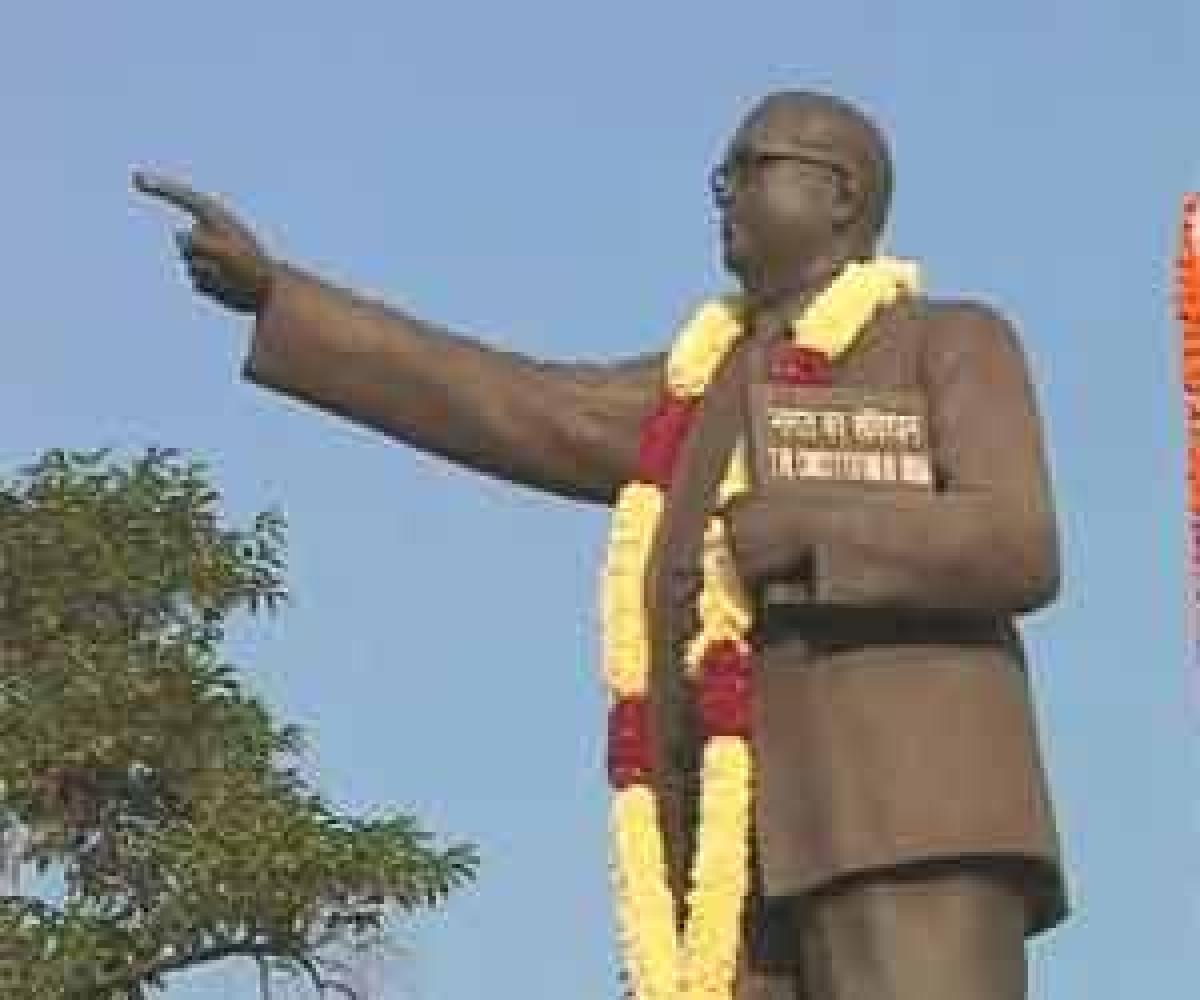Live
- Job fair for pharmacist roles tomorrow
- New ration cards to be issued in January
- Job mela at Masab Tank tomorrow
- New toilets facilitated for MPP school students
- Steps to safeguard natural springs gain momentum
- RWAs want officials to clear fog over SCB-GHMC merger
- Tanks, canals remain neglected despite execution of MGNREGS works
- BRS to celebrate Deeksha Diwas on Nov 29, Dec 9
- NCC Day grandly celebrated at SITAM
- CITU demands rollback of strategic sale of VSP
Just In

The nation commemorates the 125th birth anniversary of one of its illustrious sons who authored the republican constitution. Leaders will today beam before television cameras garlanding the statues of Dr B R Ambedkar. But, the society wants the political system to go beyond paying a vacuous tribute to the Architect of Democratic India.
The nation commemorates the 125th birth anniversary of one of its illustrious sons who authored the republican constitution. Leaders will today beam before television cameras garlanding the statues of Dr B R Ambedkar. But, the society wants the political system to go beyond paying a vacuous tribute to the Architect of Democratic India.
Ambedkar always advocated social democracy rather than a mere political democracy. This requires the country to overcome the social inequalities. Dr Ambedkar stated while commending the draft Constitution to the Constituent Assembly for adoption, “we are giving ourselves a basis to provide a system of ‘one man, one vote’, but we are a long way off from creating a society where we can have ‘one man, one value’.” But, a large proportion of the marginalised communities still lag behind in every indicator of social and economic development.
Many have a wrong impression that Dr Ambedkar fought for Dalits alone. But, he wants an end to all forms of social discrimination. He said, “I measure the progress of a community by the degree of progress which women have achieved.”
Thus, a sectarian perception of his philosophy is flawed. Unlike many, the constitutional vision of Ambedkar goes beyond the political framework. This is evident from his famous thesis on liberty, the bedrock of modern democracy. He remarked, “What are we having this liberty for? We are having this liberty in order to reform our social system, which is full of inequality, discrimination and other things, which (are in) conflict with our fundamental rights.”
Stating that where ethics and economics come in conflict, victory is always with economics, Ambedkar envisioned the emergence of crony capital and rejected it in strongest terms when he stated, “Vested interests have never been known to have willingly divested themselves unless there was sufficient force to compel them.”
At a time when religious orthodoxy wants to rule public affairs, Ambedkar‘s ideas are truly secular. He said, “The sovereignty of scriptures of all religions must come to an end if we want to have a united integrated modern India.”
Private greed is now dominating the public discourse. But, Ambedkar steadfastly stood for egalitarian values. He said that equality may be a fiction but nonetheless one must accept it as a governing principle. These pearls of wisdom are embodied in the Directive Principles of State Policy enshrined in the Constitution of India.
So long as you do not achieve social liberty, whatever freedom is provided by the law is of no avail to you. Ambedkar did not hesitate to reject religious bigotry to affirm his thought. He said, “Indians today are governed by two different ideologies. Their political ideal set in the preamble of the Constitution affirms a life of liberty, equality and fraternity.
Their social ideal embodied in their religion denies them. Religion must mainly be a matter of principles only. It cannot be a matter of rules. The moment it degenerates into rules, it ceases to be a religion, as it kills responsibility which is an essence of the true religious act.”
Men are mortal. So are ideas. An idea needs propagation as much as a plant needs watering. Otherwise, both will wither and die. Taking inspiration from these words of Ambedkar, India needs to rededicate itself today to popularisation of his teachings.

© 2024 Hyderabad Media House Limited/The Hans India. All rights reserved. Powered by hocalwire.com







